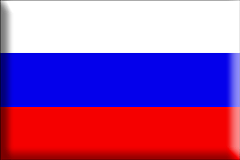Official: Financial crisis pried open door to new EU-Russia talks
 Moscow - The sting of the financial crisis was the main reason for the European Union in reopening talks on a partnership pact with Moscow despite EU criticism of Russia's war with Georgia in August, a top Russian lawmaker said Tuesday.
Moscow - The sting of the financial crisis was the main reason for the European Union in reopening talks on a partnership pact with Moscow despite EU criticism of Russia's war with Georgia in August, a top Russian lawmaker said Tuesday.
Mikhail Margelov, the head of the Foreign Affairs Committee in Russia's upper house of parliament, suggested that the EU's decision was driven by pure economic pragmatism.
"In Brussels they felt how uncomfortable it is to parade around for a long time with their fist clenched," he told the news agency Interfax.
"Necessity in relation to the financial crisis knocked on the door, and without Russia (the EU) will not pull through," Margelov said.
Russian officials have cast the country as a rock of strength amid the economic turmoil and that Russia may even have enough funds in its oil-rich coffers to come to the rescue of other nations bled dry of cash.
Russia is the EU's third-largest trading partner and the bloc's principal supplier of oil and gas.
EU leaders suspended talks on a new accord that governs its relations with Moscow in protest over Russia's occupation of Georgia after the five-day war in August.
EU diplomats are still not fully satisfied with Moscow's troop pullback, seeing thousands of troops stationed in Georgia's breakaway provinces as a breach of the EU-brokered ceasefire agreement.
But analysts agree that the EU's core-member states, such as Russia's largest trading partners Germany and Italy, are more concerned with defending bilateral deals than making a stand for Georgia's sovereignty - or that other thorny issue Russian threats over US missile defence plans.
Margelov stressed that the EU "despite various reservations" jump- started relations again Monday.
"It's already not so much about the Caucasus or about the possibility of Russia deploying rockets to (the European enclave of) Kaliningrad," he said.
Russia's markets were also hit last month with their worst days since the national currency collapse in 1998, with stocks losing over 70 per cent of their value since peaks in May. (dpa)